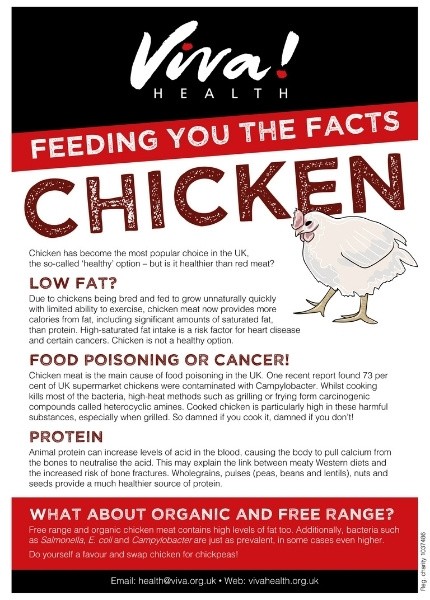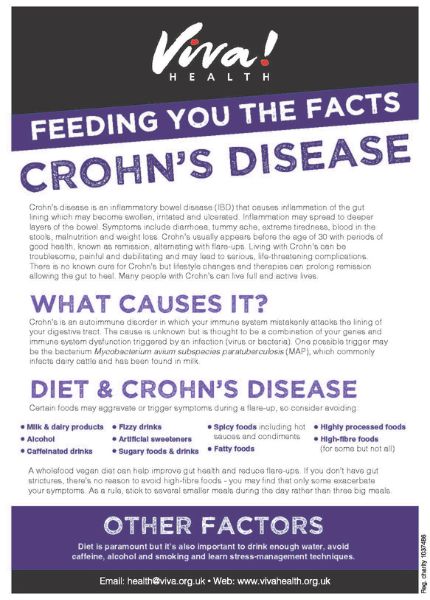
Mini factsheet: Vitamin B12
Vitamin B12 helps make red blood cells and keeps our nervous system healthy. If you lack vitamin B12 you could suffer from vitamin B12 anaemia – your red blood cells aren’t able to carry oxygen around your body properly.
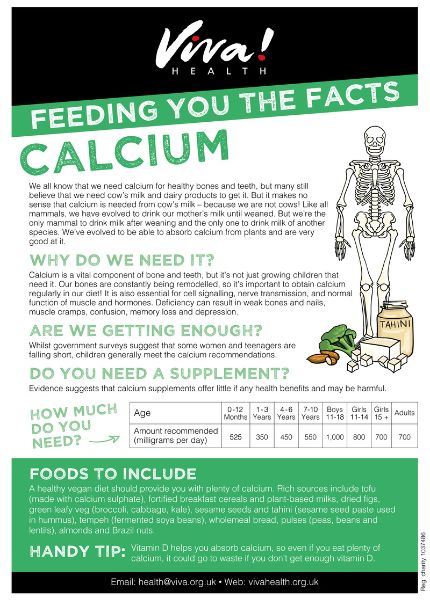
Mini factsheet: Calcium and vitamin D
You need calcium for healthy bones and teeth, but you don’t need cow’s milk and dairy products to get it. Vitamin D is often overlooked, and many people are unaware that deficiency is not uncommon in the UK, especially during the winter!
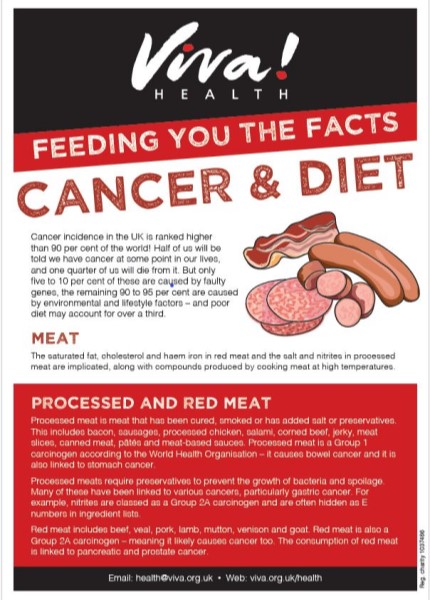
Mini factsheet: Cancer and diet
Cancer incidence in the UK is ranked higher than 90 per cent of the world! Half of us will be told we have cancer at some point in our lives, and one quarter of us will die from it
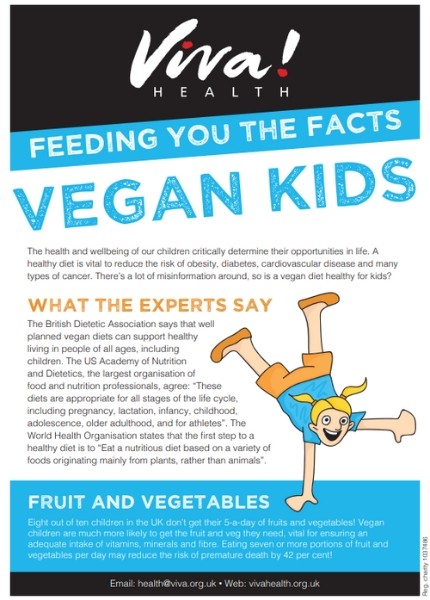
Mini factsheet: Children
The health and wellbeing of our children critically determines their opportunities in life. There’s a lot of misinformation around, so is a vegan diet healthy for kids?
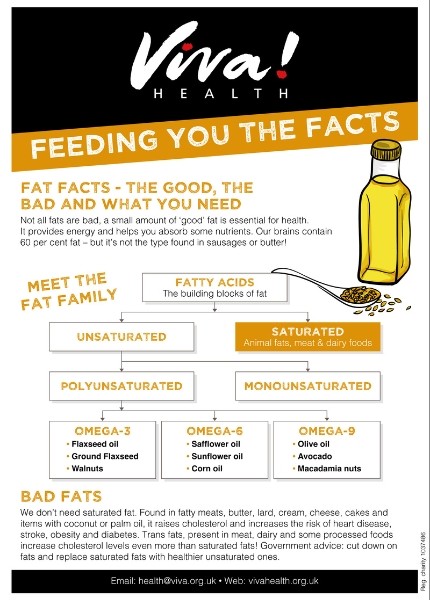
Mini factsheet: Fat facts
Not all fats are bad, a small amount of ‘good’ fat is essential for health. It provides energy and helps you absorb some nutrients.
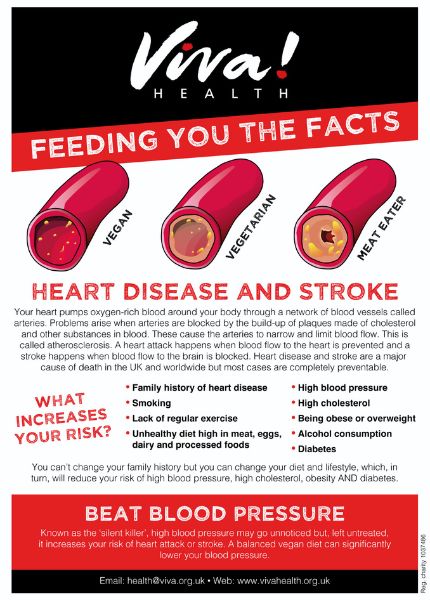
Mini factsheet: Heart health
Your heart pumps oxygen-rich blood around your body through a network of arteries. Problems arise when arteries are blocked by the build-up of plaques made of cholesterol and other fatty substances in blood
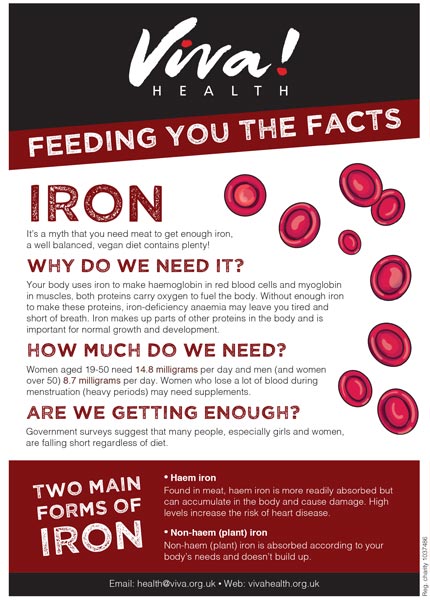
Mini factsheet: Iron
Your body uses iron to make haemoglobin in red blood cells and myoglobin in muscles, both proteins carry oxygen to fuel the body. Without enough iron to make these proteins, iron-deficiency anaemia may leave you tired and short of breath.
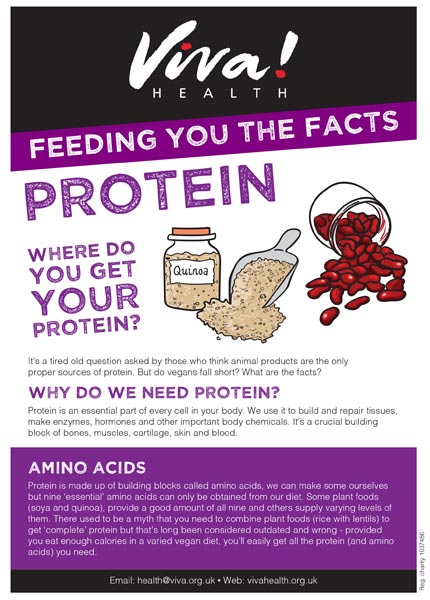
Mini factsheet: Protein
It’s a tired old question asked by those who think animal products are the only proper sources of protein. But do vegans fall short? What are the facts? Why do we need protein?
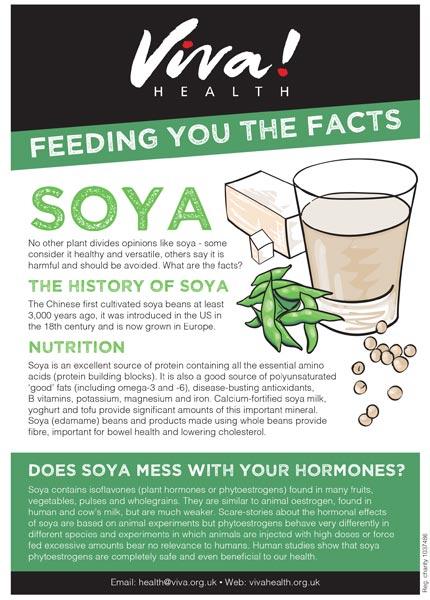
Mini factsheet: Soya
No other plant divides opinions like soya – some consider it healthy and versatile, others say it is harmful and should be avoided. What are the facts?

Mini factsheet: Dementia
In the UK, one in 11 people over the age of 65 has dementia. However, 40 per cent of cases could be prevented or delayed and evidence shows a healthy diet can help.
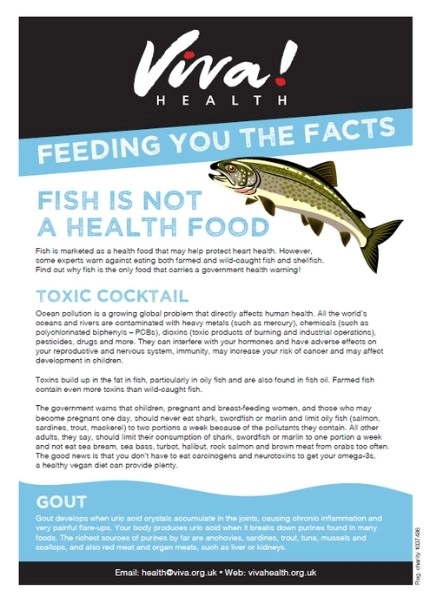
Mini factsheet: Fish
Fish is marketed as a health food that may help protect heart health. However, some experts warn against eating both farmed and wild-caught fish and shellfish.
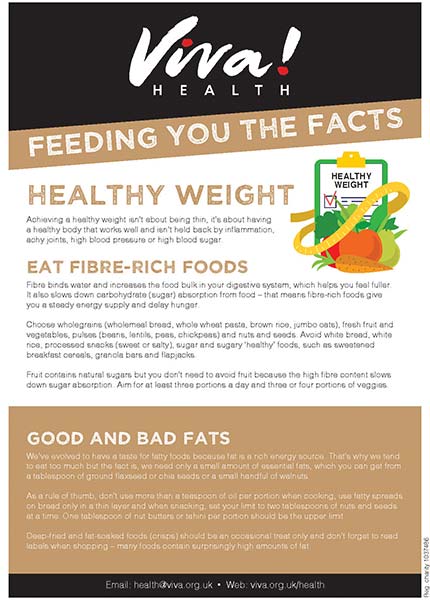
Mini factsheet: Healthy weight
Achieving a healthy weight isn’t about being thin, it’s about having a healthy body that works well and isn’t held back by inflammation, achy joints, high blood pressure or high blood sugar.
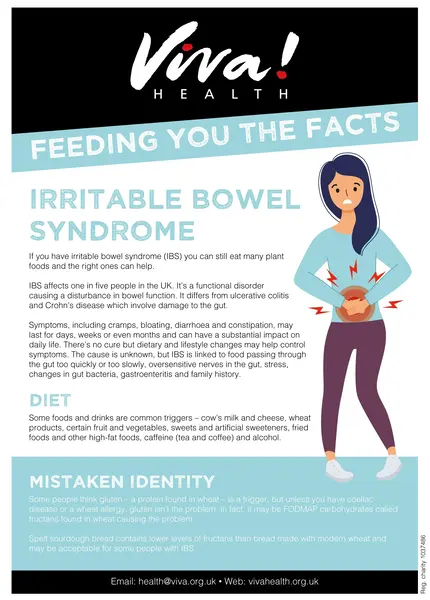
Mini factsheet: IBS
If you have irritable bowel syndrome (IBS) you can still eat many plant foods and the right ones can help.
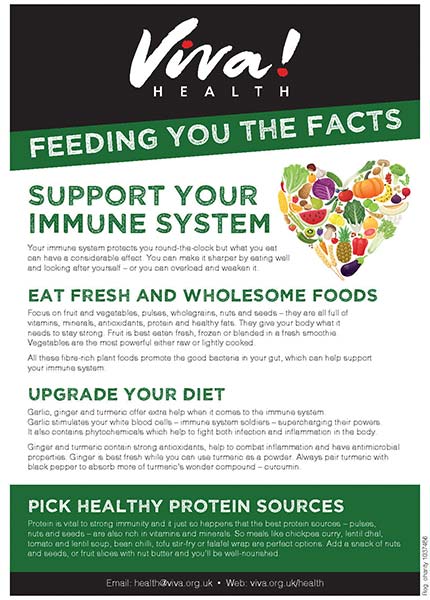
Mini factsheet: Immune system
Your immune system protects you round-the-clock but what you eat can have a considerable effect. You can make it sharper by eating well and looking after yourself – or you can overload and weaken it.







